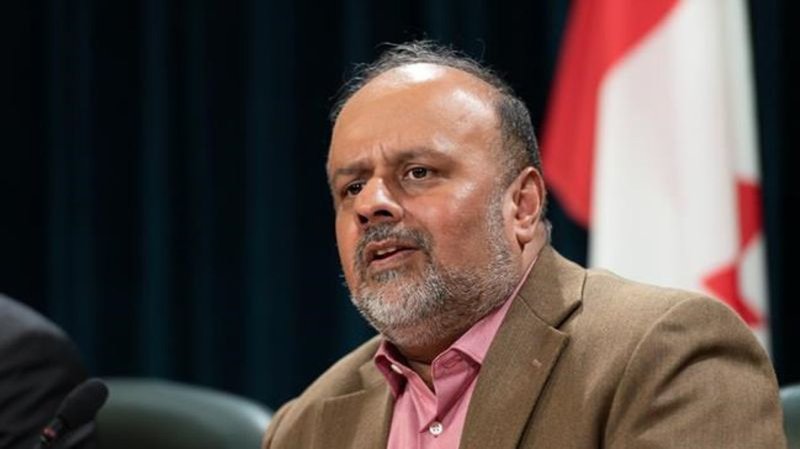
Saskatchewan’s chief medical health officer cries as he presents COVID-19 modelling
REGINA — Saskatchewan’s chief medical health officer cried Wednesday during a teleconference on COVID-19 modelling in the province.
Dr. Saqib Shahab said it’s upsetting to see what is happening in Saskatchewan’s hospitals and intensive care units.
“All the evidence is out there. And it’s very distressing to see very young, unvaccinated people ending up in ICU and dying,” Shahab said. “To see young lives lost through a vaccine-preventable disease — how can we see this in a country where we’ve had vaccines available since July?”
Saskatchewan continues to have the highest weekly death rate among the provinces and has started transferring patients to Ontario as hospitals run out of beds and staff.
